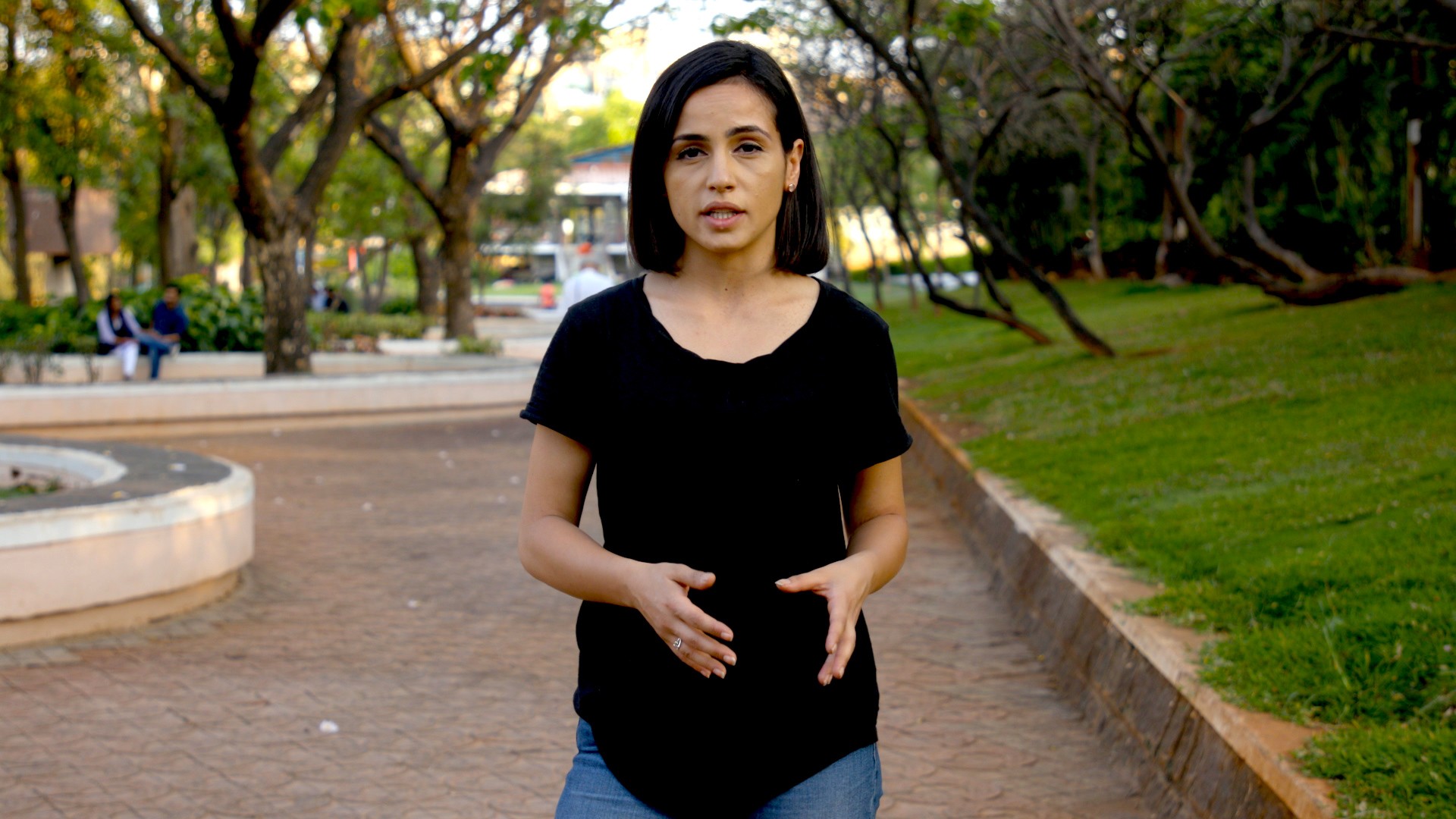SrdjanPav / Getty
Fatima* still remembers the incident clearly. “I was walking to the grocery store when two guys came up behind me and grabbed at my headscarf,” she says. “I immediately screamed. They just laughed, called me a ‘muslim bitch’ and ran off."Fatima—who prefers not to use her full name since it could make her and her family targets for further abuse, either online or in real life—says that now, if someone walks up close behind her, she always feels scared, even if they’re just trying to bypass her. “I’m on high alert wherever I go—I keep my phone in my hand with my brother’s number first in my call list,” she says.In 2016, Islamophobic hate crime in the US rose by 20 percent. But what’s rarely discussed is the impact on individuals’ mental health, even though studies suggest Islamophobia negatively affects the wellbeing of muslims worldwide. One person witnessing these repercussions first hand is Rabhi Bisla, a 30-year-old Muslim American trauma therapist, who works primarily within Los Angeles’ south Asian community.Bisla decided to pursue clinical psychology after a bad experience with a therapist she visited at age eight, after her father passed away. “She was an older white woman and it was really difficult explaining traditions and what the funeral would look like,” she explains. “I felt so exoticized. After that, I decided I wanted to become that person I needed back then.”It was through her work in crisis response that Bisla began noticing how Islamophobia and hate crimes impacted her clients in a similar way to other traumas.“If there’s a rape or sexual assault, I’m the person the community reaches out to, as they trust me and know I keep our conversations confidential.”
Watch this from VICE:
Bisla tells me that most people she works with have experienced Islamophobia, but that isn’t why they come to see her. “They’re used to it; it’s so normal to them,” she says. “I’ve done a lot of work on PTSD, and people tend to associate that with war vets, but actually a lot of us are living in a constant state of it, just trying to get by day-to-day. A trauma response is a normal survival reaction that you have to an abnormal situation. I started seeing how trauma responses are linked to this constant state of fear and defensiveness you live in as a Muslim American.”Unable to find much published research on the subject, she decided to conduct her own. “I started interviewing people about their memories of September 11,” she continues. “I got chills from what they were saying.” One girl told Bisla how her mother phoned her at school, told her to take her hijab off, and that she would come collect her. Two other guys were at an airport wearing turbans when the news broke. They were so scared, she says, they went and brought baseball caps and shaved their beards off in the bathroom.“As I listened to the recordings I went through my list of PTSD features and I was like, woah, yes, they’re describing feeling numb. They came home and cried: they still remember it. It was all there. And the ongoing triggers are everywhere—they’re on social media, when you see articles shared, when you hear about racist attacks,” Bisla says.One of the few people researching contemporary Islamophobia in the US is Hatem Bazian, a lecturer in the departments of Near Eastern and Asian American and Asian diaspora studies the University of California, Berkeley. However, he initially struggled to get funding for his work. “If you want money to study the threat of Islam, there’s a lot available,” he says. “All the resources are directed at further problematizing Islam. And from the beginning, I was told there was no such thing as Islamophobia.” He adds, with a disbelieving laugh, “even though 55 percent of school kids have experienced faith-based bullying.”Bazian is now working on a study looking at Islamophobia as a public health issue, which is set to be published in August. He describes the main patterns he sees in the people he’s working with as a mix of “increased stress, feelings of isolation, eating disorders, anger, and lashing out.” He also says it’s impacted not just by real life incidents, but by seeing repeated negative stereotypes in the media.Bisla says she believes fear of hate crime puts most muslims on constant alert, always scouring their environment for risks—a state known as "hypervigilence." “Most people I know have an app on their phone to call for help,” she says. “And I know I don’t trust law enforcement.”Hypervigilence leads to chronic stress, which is believed to have long-term physical effects. One study found that African-Americans with hypervigilence have higher blood pressure, which can lead to increased risk of heart disease and stroke. And one of the communities most vulnerable to increased mental health problems are refugees. “For people who come to the US from war-torn countries, Islamophobia also re-triggers their PTSD,” Bazian says.Bisla has also worked with refugee communities in Europe, and saw the way Islamophobia exacerbated the other traumas they had experienced. “One girl said to me ‘I feared for my life in my country, I feared for my life in the boat, now I’m scared walking down the street in the hijab,’” she says.And these communities also sometimes struggle to access appropriate healthcare due to the layers of exclusion they face, and also the stigma attached to mental health in their communities. “Many have triple minority status. They may be a racial minority, a religious minority, and also have minority immigration status,” Bazian says. “Then if you actually get to a therapist, they need to be culturally sensitive and have translation available, if necessary.”“When I enter a space I’m introduced as the artist, rather than being like ‘I’m a psychologist, now tell me all your heavy stories or whatever,” Bisla explains. “We sit in a circle and do art therapy exercises, making the conversations happen in a more natural way.”But even if access to mental healthcare can be a struggle, Rabhi believes that some elements of Islam can help combat anxiety, stress and poor self-image. “Meditation and prayer are really beneficial,” she says. “Also, I think a really beautiful part of Islam, which doesn’t get shared so often, is that the community’s down for you no matter where you are. If I walk into a mosque anywhere in the world, I’m welcomed as if it’s my own mother’s house."“Knowing that other people have you back, even when the cops and media don’t, is so powerful, because those are the people who matter the most.”Sign up for our newsletter to get the best of Tonic delivered to your inbox weekly.
Advertisement
Watch this from VICE:

Bisla tells me that most people she works with have experienced Islamophobia, but that isn’t why they come to see her. “They’re used to it; it’s so normal to them,” she says. “I’ve done a lot of work on PTSD, and people tend to associate that with war vets, but actually a lot of us are living in a constant state of it, just trying to get by day-to-day. A trauma response is a normal survival reaction that you have to an abnormal situation. I started seeing how trauma responses are linked to this constant state of fear and defensiveness you live in as a Muslim American.”
Advertisement
Advertisement
Advertisement
